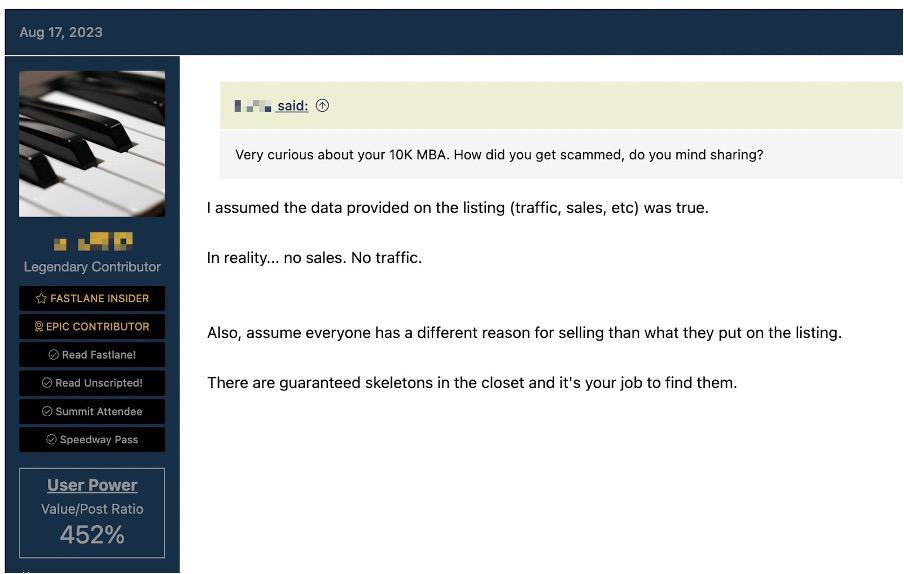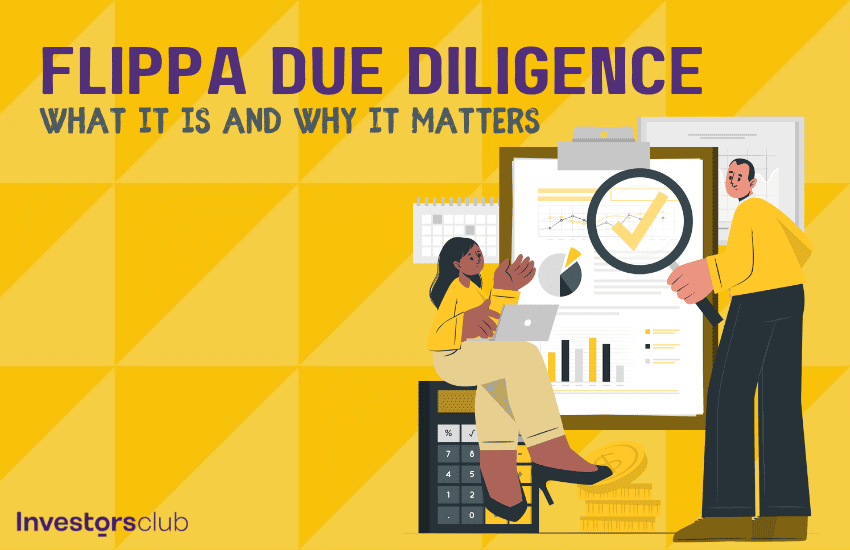Due diligence is a critical step in buying a website or online business. It helps buyers protect their investment and make an informed decision before committing to a purchase.
This article covers the details of due diligence as it relates to buyers using the Flippa marketplace. We’ll look at key aspects of due diligence, why it’s especially important on Flippa, the packages Flippa offers, how other marketplaces handle due diligence, and how to perform your own due diligence.
What Is Due Diligence?
Due diligence is investigating a potential business or investment opportunity, in this case a website, to evaluate its legitimacy and potential for positive return on investment (ROI). The goal of due diligence is to uncover any potential red flags or risks that may impact the value or sustainability of the investment.
Are the seller and the business legit? Unfortunately, some marketplaces list websites and businesses that are deceptive or outright scams. Due diligence helps buyers avoid potential losses from falling victim to these. Additionally, it allows buyers to fully understand the strengths and weaknesses of their investment.
Why Due Diligence Is Important When Buying on Flippa
Flippa is a marketplace where anyone can list their website or online business for sale. While this creates a diverse range of options for buyers, it also means there may be fraudulent or misrepresented listings. Unfortunately, Flippa scams can and do occur. If you read Flippa reviews, you’ll find many buyers claiming to be the victim of a scam.

Due diligence is essential regardless of what platform you use to buy a website or online business, but some marketplaces take a more proactive approach than others. Flippa’s team verifies the traffic and revenue of listings $50,000 and above, but listings below $50,000 aren’t verified.
Anyone looking for a website on Flippa should take due diligence very seriously due to the lack of verification of many listings.
Flippa’s Due Diligence Services
Flippa offers three different due diligence packages: red flag report, standard report, and enhanced report. These packages are optional and come at a cost for buyers.
Here are Flippa’s due diligence packages:
| Red Flag Report | Standard Report | Enhanced Report | |
| Analysis period | 1 year | 2 years | 3 years |
| Report size | 11-14 pages | 21-25 pages | 26-35 pages |
| Price range recommended for | $1-$30,000 | $30,000-$200,000 | $200,000+ |
| Cost | $1,500 | $2,000 | $2,500 |
Unfortunately, the cost of these services can make them unrealistic for buyers in lower price ranges. A $2,500 due diligence expense is easy to justify before spending $1 million on a website, but a $1,500 due diligence expense is harder to swallow for a $3,000 acquisition.
Since most of the listings on Flippa are priced below $10,000, Flippa’s due diligence services are unrealistic for many buyers.
Performing Your Own Due Diligence
If you’re looking to do your own due diligence on Flippa, here are some steps you should take:
- Review the seller’s profile and feedback: Flippa has a reputation system in which sellers can receive feedback from past buyers. Read through the feedback to get a sense of the seller’s reputation and if any issues have been raised in their previous transactions.
- Check the domain’s history: Check Whois to see if the domain’s ownership has changed hands recently. You may also be able to verify the domain’s owner, although the owner’s details are not listed for domains with private registration (which is common).
- Check the website’s history: Use tools like the Wayback Machine to see the evolution of the website over time. This can help uncover any previous issues or red flags, like significant changes to the site’s topic or spammy content.
- Check for plagiarism: Use Copyscape or other plagiarism checkers to see if the website’s content has been stolen from another source.
- Consider trademarks: Does the domain name include a trademarked term? If so, it could lead to potential legal issues in the future.
- Analyze the traffic: Use tools like Google Analytics (you’ll need access from the seller), Semrush, and Ahrefs to analyze the website’s traffic. Compare this information to what is being claimed by the seller in their listing.
- Verify revenue claims: Ask for proof, such as bank statements or screenshots from payment processors. Videos are often better than screenshots because they’re harder to fake.
- Check for any other red flags: Look for inconsistencies in the information provided by the seller, such as discrepancies between the listing and the details you uncover. Also, be wary of unrealistic or exaggerated claims.
If you’re considering purchasing a website or online business, you can download our detailed due diligence checklist. It includes everything we’ve just covered plus much more.
These steps can help you identify many common issues and scams. Of course, you’ll also need to evaluate the business to determine whether it’s the right investment for you. Is the business model a good fit for your skills and experience? Does it offer the potential for a strong ROI?
Buying Safely
Due diligence is an essential step for buyers regardless of the marketplace, but it’s especially important on Flippa. While Flippa offers its own due diligence services, they may be too expensive for many buyers. In these situations, buyers need to conduct their own due diligence. By taking the time to thoroughly evaluate a website or online business before making a purchase, buyers can minimize their risk and increase their chances of success.

Online Business Builder & Content Strategist
Marc has been building websites and online businesses since 2007. He’s built successful businesses in several industries, including web/graphic design, photography, travel, and personal finance. Marc is the founder of Flip My Site, where he writes about buying and selling websites.
Connect with Marc:
Linkedin | Twitter | FlipMySite


Comments (1)
Robert Scanlon
February 23, 2024 at 9:26 amHi there, helpful article, thank you.
I have a question: when Google Universal Analytics is deleted from everyone’s GA account this July 1, how will this change due diligence (eg tracking traffic changes over multiple years)?
I’d love to know how Investors Club will approach this when vetting sites!
Thanks,
Robert